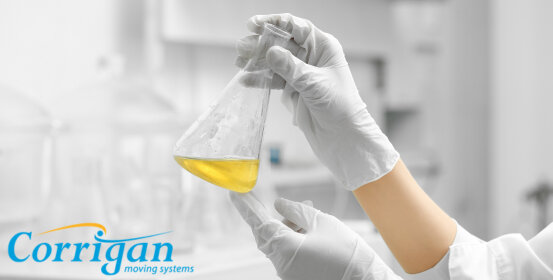Laboratory Relocation for Academic Institutions: Unique Considerations and Solutions

Relocating a lab, whether within the same institution or to a new location, presents unique challenges that require specialized attention. Pittsburgh Universities and research facilities house a diverse array of equipment, important research materials, and sensitive instruments. Ensuring a successful move requires meticulous planning, specialized expertise, and a deep understanding of the academic environment. This thorough guide provides tips into navigating the unique considerations involved in the relocation of laboratory facilities.
Understanding the Pittsburgh Academic Landscape
Pittsburgh Colleges are active, multifaceted environments where laboratories play a critical role in learning and research. Whether the relocation involves an individual laboratory or an entire research department, there are several important aspects to take into account:
- Equipment Diversity: Academic laboratories typically have a wide array of equipment, from basic lab benches and storage units to sophisticated analytical instruments and specialized research apparatus. Each item demands delicate handling and often has distinct moving needs.
- Sensitive Research Materials: Many university laboratories store sensitive materials, such as biological samples, chemical substances, and scientific data. These items often need careful handling, climate control, or secure transport.
- Collaborative Environment: Unlike industrial labs, academic labs are frequently shared spaces used by several research groups or departments. Organizing a relocation in such an environment necessitates clear communication and strategizing to reduce interruption.
- Educational Commitments: Academic institutions have ongoing educational activities. The moving process must be planned around academic calendars, ensuring minimal interruption on courses and student availability to laboratory facilities.
Important factors for Pittsburgh Academic Laboratory Relocation

- Early and Detailed Planning
Planning is the foundation of a effective lab relocation, especially in the academic context. Begin planning as soon as the decision to relocate has been made. Engage with all concerned parties, including faculty, researchers, lab managers, and students, to learn their needs and timelines. Formulate a comprehensive moving plan that includes a detailed inventory, a timeline that fits academic schedules, and a effective communication plan.
- Custom Solutions for Diverse Needs
Every academic lab is unique, with specific requirements based on its research focus and equipment. It’s important to design personalized plans for each lab being moved. This may include specialized packing for fragile instruments, climate-controlled transport for thermally sensitive items, or protected transport for dangerous materials. Corrigan Movers offers tailored services to handle these varied requirements, making sure that all aspects of the move are managed carefully.
- Managing Multiple Stakeholders
Academic moves involve a wide range of stakeholders, from teaching staff and researchers to management and facility managers. Clear communication and collaboration among these teams are essential. Set up defined communication channels and regular update meetings to keep everyone informed and engaged throughout the moving process. This strategy aligns expectations and reduces the risk of miscommunications or delays.
- Ensuring Regulatory Compliance
Academic laboratories must follow rigorous regulatory standards, including those related to security, environmental protection, and ethical standards. During a relocation, it’s important to follow these regulations to stop fines or interruptions to research activities. This includes proper documentation for the transport of hazardous items, adherence to biosafety protocols, and securing appropriate permits. Corrigan Moving Systems’ expertise in regulatory compliance ensures that all legal obligations are met during your laboratory relocation.
- Limiting Downtime and Disruption
Academic schedules are often packed with , research deadlines, and continuing work. Reducing delays is crucial to guarantee that teaching schedules and scientific projects proceed without disruption. Organize the move during semester breaks or other downtime periods to minimize disruption. Additionally, partner with a Pittsburgh moving company that can provide flexible schedules and efficient packing and unpacking services to expedite the process.
- Securing Research Data
Research data is often one of the most valuable assets in a university laboratory. During a move, it’s essential to make sure that all data is securely backed up and kept safe. This may require relocation of hard drives and computer servers or employing secure online storage. It’s also essential to follow any institutional policies regarding information security and privacy during the move.
Specialized Services from Corrigan Moving Systems
Corrigan Moving Systems has broad expertise in overseeing the challenges of laboratory relocations for Pittsburgh academic institutions. Here’s how we customize our offerings to satisfy the special requirements of academic labs:
- Expert Handling of Equipment: Our staff is trained to handle a broad spectrum of laboratory equipment, including microscopes, incubators, extraction hoods, optical tables, and centrifuges. We make sure that fragile instruments and sensitive apparatus are packed, transported, and re-assembled with the highest precision.
- Secure Transport for Sensitive Materials: We offer specialized packing and climate-controlled transport options for biological specimens, chemicals, scientific glassware, and other fragile materials. Our transport solutions make sure these items reach their new location securely and undamaged, maintaining temperature-controlled environments ranging from ambient to -190 C. Units stay functional and plugged-in during the move, with 24/7 monitoring.
- Regulatory Compliance and Documentation: Our knowledge in regulatory compliance means we can manage all needed records and licenses, guaranteeing that your relocation adheres to all relevant safety and legal standards. This requires biosafety protocols, hazardous material transport regulations, and environmental protection guidelines.
- Customized Moving Plans: We design thorough, customized moving plans for each move, adapted to the unique requirements of your laboratories and fitting your academic schedules. Our plans make sure minimal disruption to teaching and research activities.
- Limiting Disruption: We work closely with your team to schedule the relocation around your academic calendar, minimizing disruption to classes and research activities. Our flexible schedules and fast packing and unpacking speed up the move, guaranteeing a smooth transition.
- Temperature-Controlled Transport: We oversee the relocation of your freezers and refrigerators, ensuring temperature-controlled environments are kept throughout the relocation. This service is vital for preserving bio-specimens, chemical agents, and other heat-sensitive substances.
How to Get Started with Your Pittsburgh Laboratory Relocation
If you’re considering a lab relocation inside or to a new university, partnering with a professional Pittsburgh moving company like Corrigan Moving Systems can be highly beneficial. With our specialized solutions and deep understanding of the university setting, we are ready to oversee the special challenges of your move.
Reach out to Corrigan Moving Systems now to go over your laboratory relocation requirements. Our expert team is ready to offer a personalized plan that guarantees a successful, efficient, and successful move, enabling you to keep up your main activities—educating and research. Let us help you transition seamlessly to your new site, preserving the integrity of your work and the continuity of your academic mission.
- Cranberry Township
- |
- Butler
- |
- New Castle
- |
- Washington County
- |
- Scott Township
- |
- Wilkinsburg
- |
- Monroeville
- |
- Fox Chapel
- |
- McCandles
- |
- Bradford Woods
- |
- Wexford
- |
- Leetsdale
- |
- Coraopolis
- |
- Sewickley
- |
- Aliquippa
- |
- Beaver County
- |
- Gibsonia
- |
- Mars
- |
- Zelienople
- |
- Mount Lebanon
